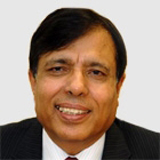 The UK government’s new childhood obesity strategy, which aims to halve childhood obesity by 2030, does not go far enough and lacks any firm commitment. The strategy proposes banning the sale of energy drinks to children, and encouraging primary school pupils to run a mile a day, as well as restricting junk food advertising. The government also plan to consult on forcing restaurants, cafes, and takeaways to include calorie labelling on their menus, as well as implementing new restrictions on television and online advertising. In my view, this does not go far enough. Not a lot has happened with childhood obesity in the past two years, since the first chapter of this strategy was announced by Jeremy Hunt. The number of children leaving primary school either overweight or obese has increased, as has the inequality gap, with children living in the most deprived areas more likely to be obese compared with children living in the least deprived areas.
The UK government’s new childhood obesity strategy, which aims to halve childhood obesity by 2030, does not go far enough and lacks any firm commitment. The strategy proposes banning the sale of energy drinks to children, and encouraging primary school pupils to run a mile a day, as well as restricting junk food advertising. The government also plan to consult on forcing restaurants, cafes, and takeaways to include calorie labelling on their menus, as well as implementing new restrictions on television and online advertising. In my view, this does not go far enough. Not a lot has happened with childhood obesity in the past two years, since the first chapter of this strategy was announced by Jeremy Hunt. The number of children leaving primary school either overweight or obese has increased, as has the inequality gap, with children living in the most deprived areas more likely to be obese compared with children living in the least deprived areas.
Obesity was a factor in more than 525,000 hospital admissions in 2016, and Jeremy Hunt has described the rise in childhood obesity as a “national emergency.” When he was appointed health secretary in September 2012, he promised a “game-changing” response. Is this the game changing plan? What we need is a bold action, not another unambitious strategy, which only promises consultations by the end of the year.
As cases of type 2 diabetes and obesity continue to rise, Hunt must act urgently and decisively. The government needs to take more robust action to tackle the impact of deep discounting and price promotions on the sales of unhealthy food and drink. As a first step, the health secretary should accept and implement all the Academy of Medical Royal Colleges’ 2013 proposals as a matter of urgency. This list of 10 recommendations includes a complete ban on junk food advertising, not just on TV before the watershed, but also on internet “on demand” services. They also recommend that there should be a statutory requirement for all schools “to provide food skills, including cooking, and a sound theoretical understanding on the long term effects of food and health.”
I accept that the government has to tread a difficult line between telling us what to eat and letting the food industry market junk food and sugary drinks to us—but that is what government is for. It took us far too long to agree on any real action against smoking, at the cost of many people’s lives.
Based on my experience of working as a GP for the past 30 years, I know that a large proportion of consultations are for conditions such as type 2 diabetes and heart disease, which are linked to lifestyle or diet. One in three children is overweight or obese by age 11. That is not only a question of aesthetics. The very future of the NHS is at stake because excess weight at this age can translate into serious chronic diseases such as blood pressure, arthritis, and diabetes at a later age.
Let’s deal with obesity now, before it overwhelms the health service.
Kailash Chand has been a GP for the past 30 years. He is the honorary vice president of the BMA and former deputy chair of the BMA council. The views he expresses in this article are entirely his own.
Competing interests: Nothing further to declare.
